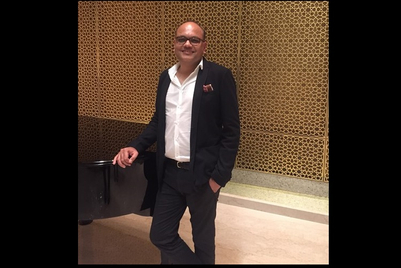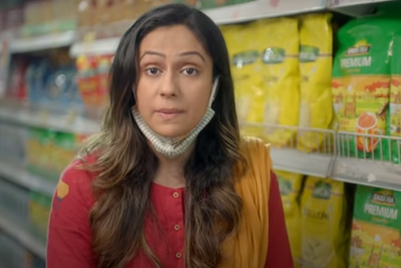The pandemic-induced lockdown last year took the entire country by an unpleasant surprise. Overnight, people were asked to remain indoors and live their otherwise full lives from the confines of their homes. They worked from home, exercised indoors, celebrated festivals over video calls and overall, learned to adapt to isolated lives that gave them very few chances to step out. Businesses, too, suffered, with only the ones dealing with essential items allowed to operate. However, even for them, setting up entirely new inventory and delivery processes, supply chains and personnel training almost overnight is no mean feat. However, after an initial struggle, several businesses did find their footing.
With a brief respite of a few months up to about March 2021, at the time when Covid-19’s second wave took the country by storm, several states in India are back to staring at lockdowns. While some of these shutdowns haven’t been as strict as their 2020 counterparts yet, the alarmingly high case count could tell a different story in a few days.
Currently, states like Karnataka and Maharashtra are facing a lockdown. This means that only deliveries of essential items are allowed. So where does that leave e-commerce companies at the moment?
Campaign India caught up with Pawan Sarda, group chief marketing officer – digital, marketing and e-commerce, Future Group, to understand how the company is faring during the second Covid-19 wave, what lessons it learnt from the virus’ 2020 version and the current trends in the category.
Excerpts:
India’s second wave is much worse than the first, resulting in lockdowns across states. How prepared were you this time around as opposed to last year?
The last year was a huge learning for us. As a brand, we strive to learn from our customers. We felt that during a crisis like this, we would like to reach out to our customers versus them coming to us. Within a short period, in April 2020, we launched our e-commerce platform.
2020 was a sudden shock. With this year’s lockdown, though, we are better prepared to serve our customers.
What were the important marketing lessons learnt last year that you’re imbibing this year?
The rules of marketing have been challenged in the last year; there is nothing called “this is it”. For me, particularly, apart from the traditional 4Ps of marketing, one more has been added – Pace (speed). Speed and agility are the game-changers during a crisis like this. How does a brand quickly change itself to serve the customer? How does it challenge roadblocks into opportunity with agility?
I also believe in moment marketing, which has seen a big shift. Gone are the days of planning marketing strategies for the entire year; I believe one needs to relook at one’s strategy on a daily basis now.
What have been some of the innovations you’ve worked on for 2021?
The last one year has been full of innovations aimed at reaching out to our customers. Having said that, we have not relied on online shopping, alone. We’ve gone further to ‘video call shopping’ and ‘WhatsApp shopping’. Consumers can also click and collect their orders from the store. It’s all about whatever is been convenient for our customers. As an organisation, we never fear to try new things.
How do you serve consumers who aren’t very savvy or consumers in places with low internet penetration?
Online shopping penetration is a challenge in smaller towns in India. Our store penetration in Tier 2 India is quite good as compared to some other retail players. That’s where WhatsApp shopping and video call shopping has really helped. We encourage homemakers to click a photo of their lists and WhatsApp it to us. This has really helped many homemakers engage and order from us.
Can you shed light on some category trends that may have emerged in the past one year?
There are a few stark trends which we have seen – kitchen and home have been a great focus for consumers. As far as food is concerned, it has not been restricted to basics; we have seen good demand for high-end food products, too. The kitchen has been a big source to keep families together with positivity. The home has been a great focus, too, with consumers buying everything from bed sheets and towels to electronics.
As far some fashion is concerned, comfort-wear and sleepwear have seen almost double the demand as compared to any previous years.
Have you noticed a stark change in the Indian consumer since 2020? Have their priorities changed? Please elaborate.
I do have a few observations. First off, ‘fear’ and ‘need’ are driving a large part of the consumer demand. The fear has led to stocking up and the need is about what consumers need at that point in time. That’s why categories like food and essentials, laptops and work from home furniture saw a huge demand.
Secondly, festivities have helped create a great demand, too. They are the only times customers have gone out of their way to fulfil their family’s desires. I also feel, that during an atmosphere like this, every family has tried to bring in some extra cheer during festivities.
Could you tell us about your omnichannel strategy?
Our strategy is simple; we want to be there where our customers are. If they don’t want to come to the store, we will bring the store to them.
One big need gap we realised our from our customer was delivery time. If they want something, they want it now. That’s why we have launched a “2-hour delivery” promise. This promise doesn’t restrict itself to food alone. Whatever one wants to buy from food and fashion to electronics and cookware, we will send everything across in two hours.










.jpg&h=268&w=401&q=100&v=20250320&c=1)
.jpg&h=268&w=401&q=100&v=20250320&c=1)
